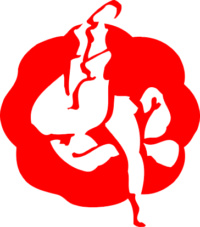Belt Promotion
Students are provide the opportunity to advance from White, Green, Brown and Black belt. Candidates are required to: demonstrate knowledge, skill and tournament management applications. Promotions are held 2 times during the semester. A Certificate of Promotion will be awarded after successful completion.
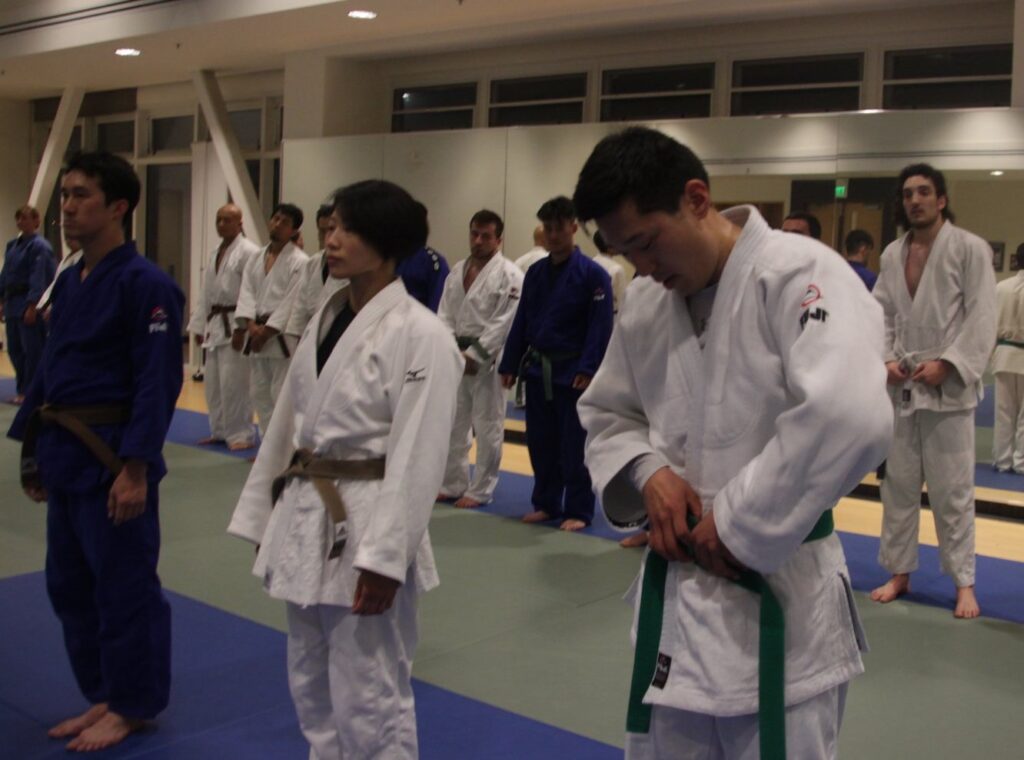
Yonkyu: 4th Degree
Green Belt
A green belt signifies the student has begun a study of Judo. Perhaps the most important part of becoming a green belt is a genuine comfort with ukemi (falling technique). Green belt recognizes that a student has become a judoka – someone who understand enough about Judo to recognize the range and scope of Judo practice, even if they are not yet capable of more than very basic performance. The green belt examination sets forth a pattern of technical testing in posture and movement, throws, pins, chokes and armlocks as a sampler of all the areas that will grow as the judoka progresses in their study. Many people linger at green belt while they explore the idea of going further in Judo.
Sankyu: 3rd Degree
Brown Belt
Committed Learner. The sankyu rank is an extremely important one. The sankyu is awarded to those who have committed to the path of learning Judo. It recognizes an important transition as the judoka has learned more than half of the body of Judo techniques. The study of Judo has begun in earnest and the focus often switches from theory to practice. Progress from this point forward depends on the ability to apply Judo techniques in randori, shiai, and kata.
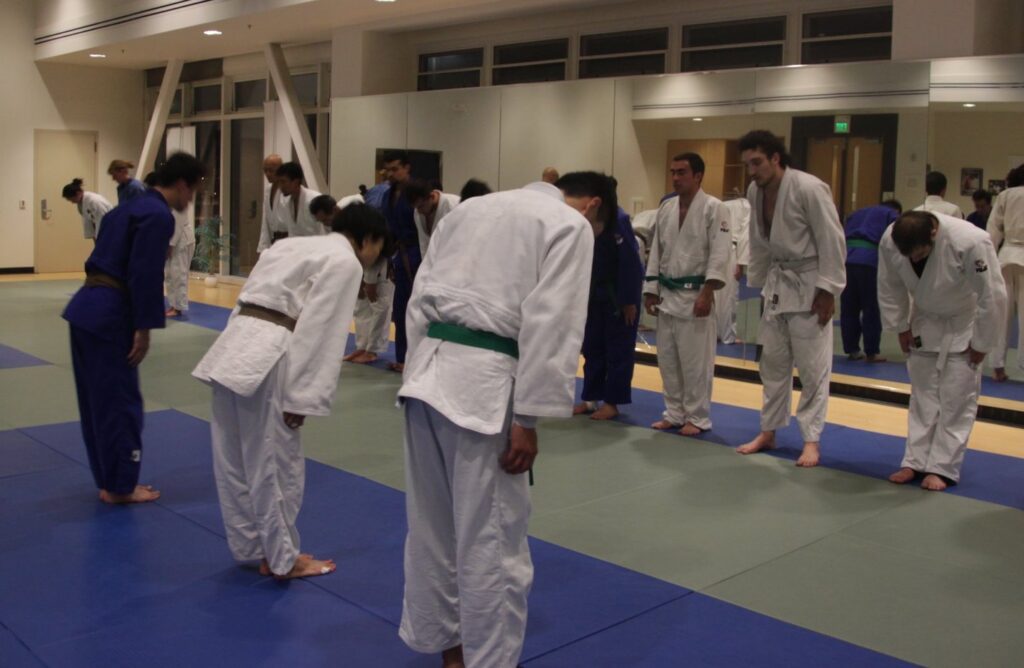
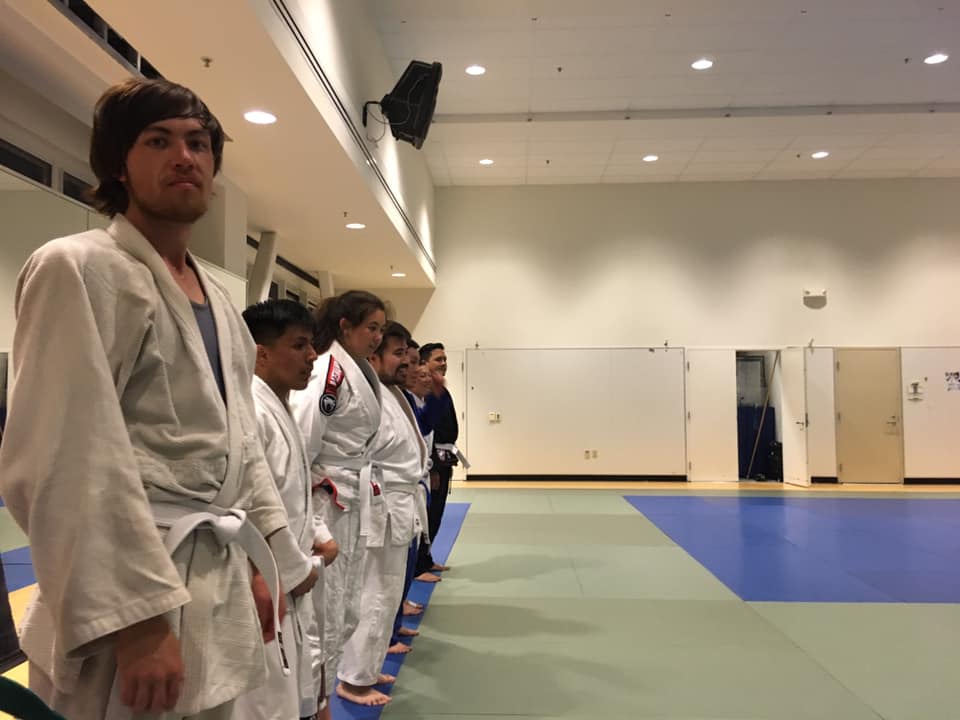
Nikyu: 2nd Degree
Brown Belt
Advanced Learner. The nikyu rank marks the approach to an understanding of full the scope of Judo techniques. The majority of standing and ground techniques have been demonstrated and combinations and countering have advanced. Progress to Nikyu is marked by competition victories or an extended period of study.
Judo has many faces–as a sport, self defense, exercise and philosophy. As a result, there are many goals that one can harbor through the practice of Judo. The most important goal, however, is the development of oneself as a person. To develop one’s character through Judo means to learn many of the same values, morals, and ethics passed on to the student from the instructor
Ikkyu: 1st Degree
Brown Belt
Senior Learner. Earning the ikkyu requires demonstrating the whole core corpus of Judo techniques. It marks the completion of the learning curriculum where the technical range of Judo has been covered, but not necessarily mastered. The ikkyu needs to understand what constitutes Judo and begins to make more contributions to the Judo community through work as a technical official, refereeing or earning a coaching certification. The introduction study of the Nage no Kata continues. Randori application of Judo concepts deepen with practice. Participation in competition is encourage to experience competence in application.
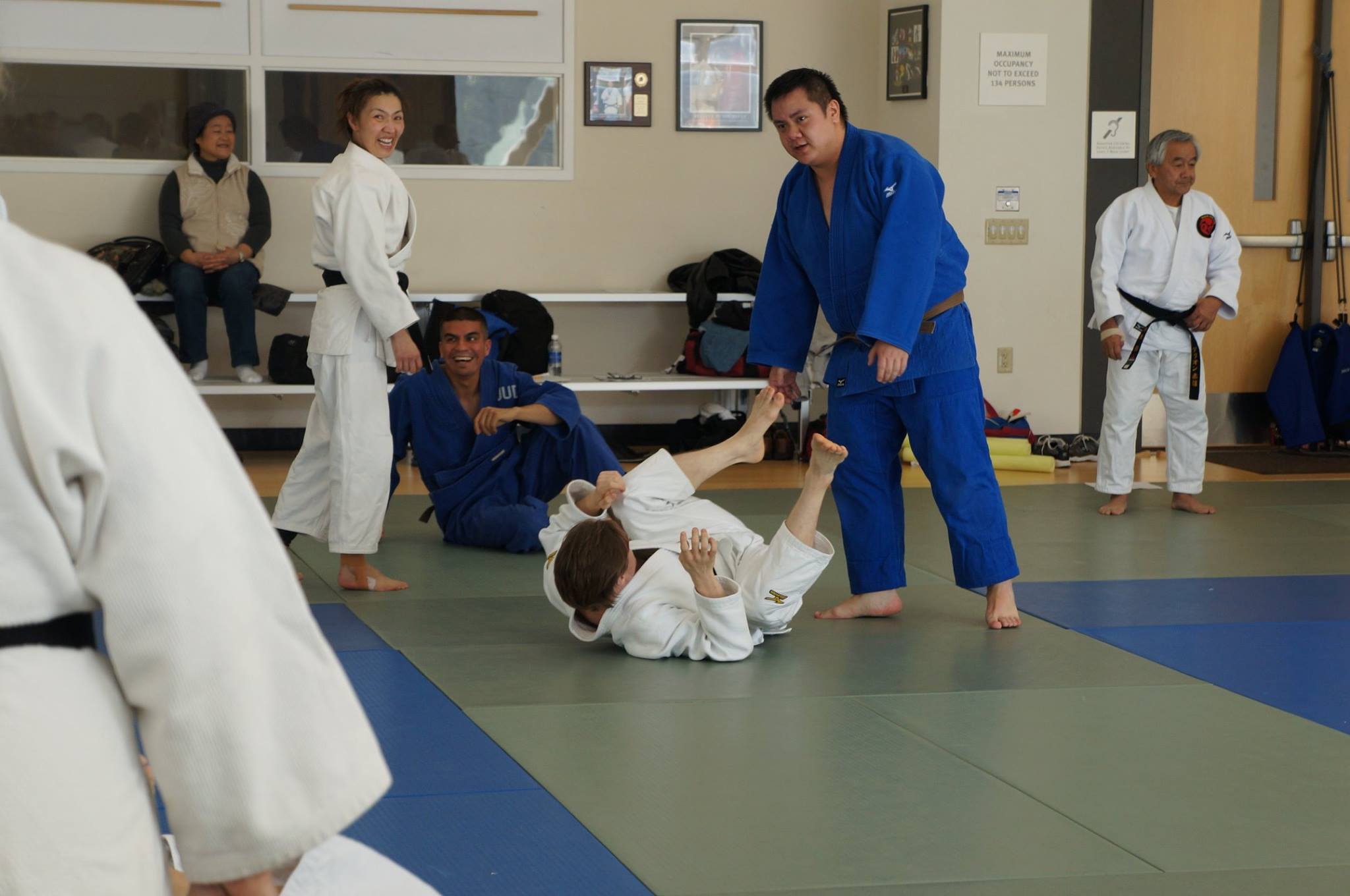
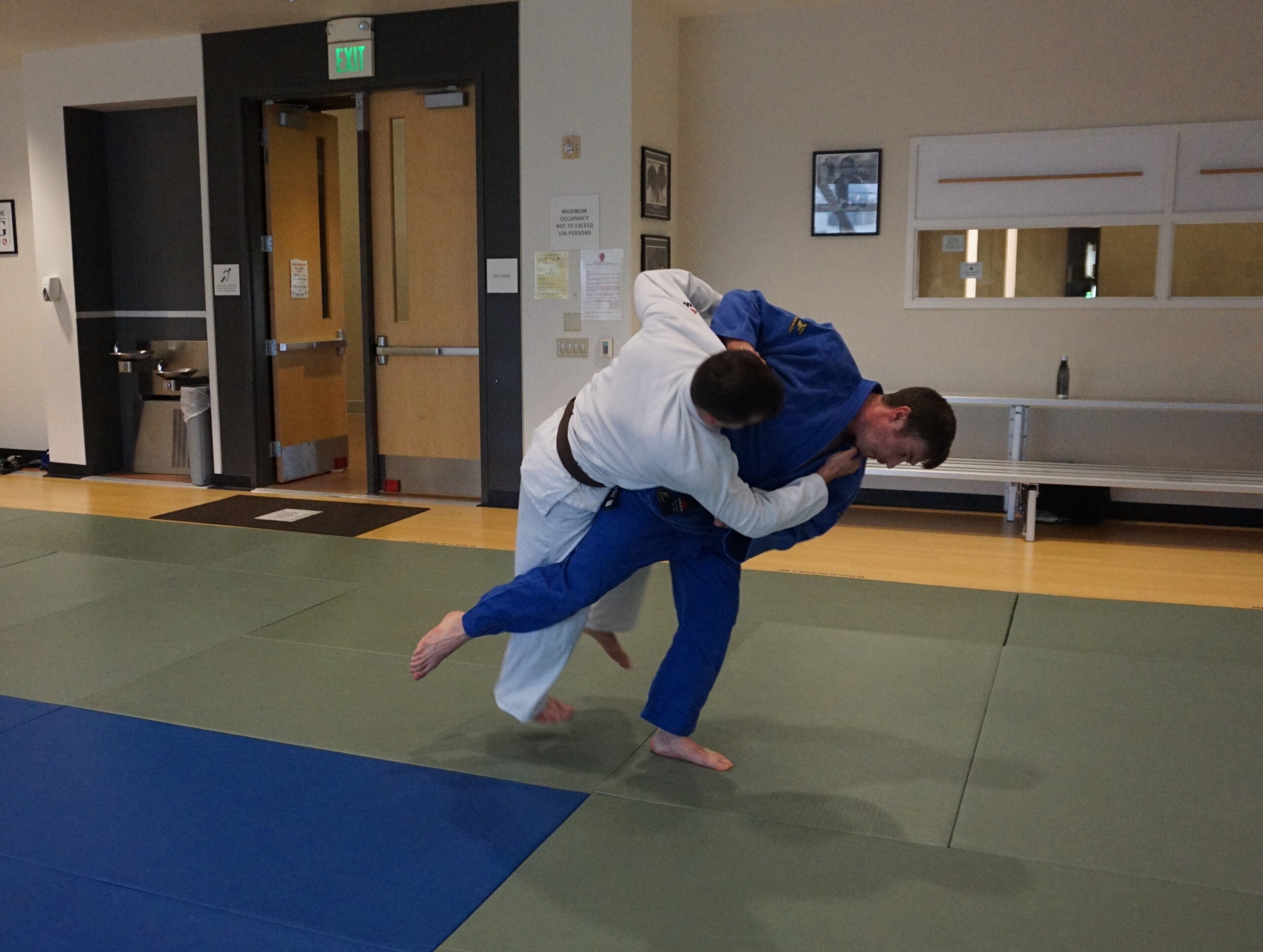
Shodan: 1st Degree
Black Belt
Beginning Grade. The first black belt grade is perhaps the most misunderstood rank in all of Judo. While many consider the black belt to be the coveted completion of their Judo study, the shodan really represents the beginning of learning Judo on their own. The real work of learning Judo begins at Shodan when the judoka knows and can demonstrate the full range of techniques, has a record of application in practice, and a record of service to the community. The shodan has internalized enough of Judo concepts and principles to lead a student along the path of their learning and to lead their study.
